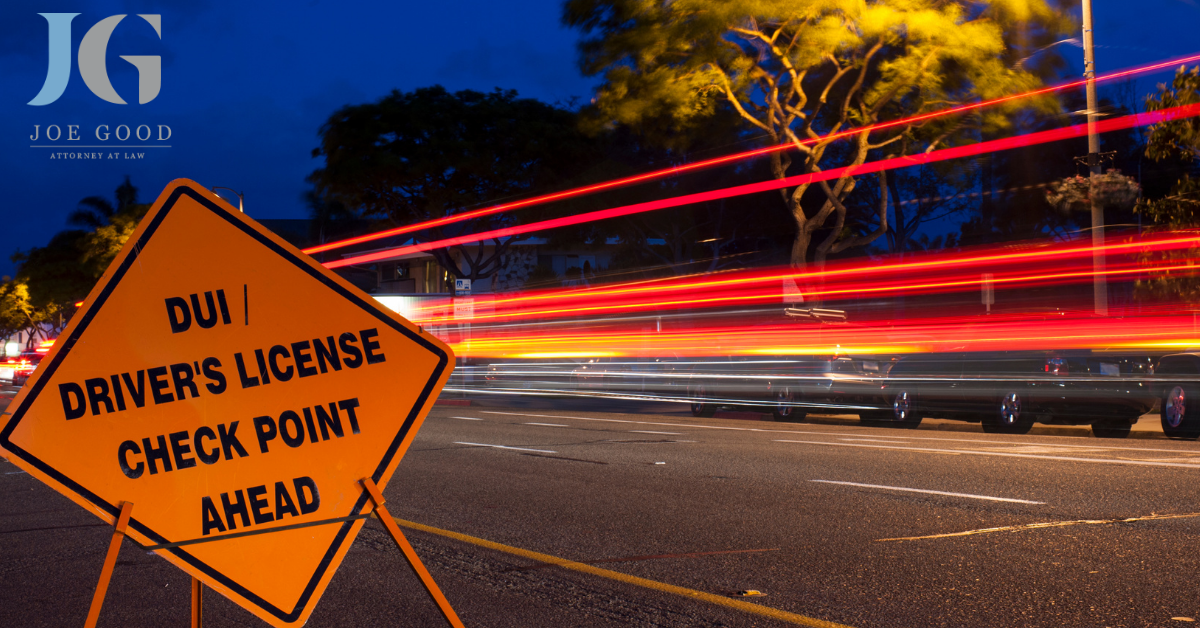Did you know that 12 states have prohibited the use of sobriety checkpoints? Let’s discuss concerns about DUI checkpoints, their legal standing in South Carolina, and what you can expect if you encounter one.
A Violation of Constitutional Rights?
Some states have ruled that DUI checkpoints are a violation of each citizen’s Fourth Amendment rights. This amendment protects people from illegal search and seizure. Because sobriety checkpoints give law enforcement a way to evaluate and ‘search’ drivers without establishing probable cause, some states have prohibited this practice. In South Carolina, though, sobriety checkpoints remain legal.
Though they are legal in South Carolina, it’s essential to know that they must be ‘constitutionally valid’ in order to be legal. This means that they must follow set procedures to ensure they are unbiased. To do this, they use neutral factors to choose which cars are stopped when going through the checkpoint. An example of this would be stopping every 5th car that goes through.
Are Checkpoints Voluntary?
You may be wondering, if you see a checkpoint ahead, can you avoid it? Technically, yes. Checkpoints are optional. However, you cannot make any traffic violations in order to avoid the checkpoint. If you make an illegal turn, this gives the police reason to follow you and pull you over anyway.
What Happens At A Checkpoint
If your car is selected to be stopped, you will be approached by an officer. They will most likely ask for your license, registration, and possibly proof of insurance. During this initial interaction, the police officer will be observing you for any signs of intoxication. This could be slurred speech, uncoordinated movements, or smells of alcohol coming from inside your vehicle.
If after their quick interaction with you they believe you are under the influence, they will likely ask you to participate in further sobriety testing. This may be a breath test or field sobriety test.
If asked to take a breath test, the officer will have you blow into a handheld device that will measure the ethanol in your breath, producing a BAC reading. This is the most common method of sobriety testing. If you refuse to take this test, your license will be suspended as a consequence.
There are three standardized field sobriety tests you may be asked to take:
- The One-Leg Stand Test
- The Walk and Turn Test
- Horizontal Gaze Nystagmus Test
These tests, however, are based on officer discretion and are failed by a high percentage of sober drivers. For those reasons, you should always refuse to participate in field sobriety testing. If you refuse, you cannot be penalized and your license will not be suspended. Even if you think you can pass, don’t take the risk. The officer who pulled you over already suspects you are under the influence and will be looking for any reason to fail you during a field sobriety test.
After either participating in or refusing further testing, the officer will make a decision about whether or not to arrest you for driving under the influence.
Use Your Rights at DUI Checkpoints in Mt. Pleasant, SC
Many people fail to invoke their rights when interacting with police simply because they don’t know them, or feel that using their rights will lead to further trouble. However, you have these rights to protect yourself, and we implore you to use them.
The Right to Remain Silent
Many people have a false understanding that you only gain this right after being arrested, or that you only have it when police read you your Miranda Rights informing you of your right to stay silent. This is not the case.
First, the police are not required to read you your Miranda Rights unless you are in police custody. They will not alert you of your right to remain silent during your initial interaction, you must simply know that on your own.
Whenever you are interacting with law enforcement, you have the right to remain silent.
During a sobriety checkpoint, officers may ask questions about where you have been or how much you have had to drink. You do not have to answer these questions; anything you say can be held against you in a future case. All you are required to do is provide your license and other documentation to the officer. Calmly state that you are using your right to remain silent. It is important that you explicitly state this – if you don’t, your silence could potentially be used against you.
Say No To A Search
You do not have to consent to a warrantless search unless there is evidence in plain view in your vehicle. If the officer asks to search your car, calmly and politely say you do not consent to a search.
Refuse Field Sobriety Testing
Numerous non-alcohol-related factors can lead you to fail these tests, such as:
- Road conditions
- Weather conditions
- Your footwear
- Medical conditions
- Misunderstanding verbal instructions
There is no penalty for refusing, so always refuse!
Charleston South Carolina DUI Defense Attorney
Contact attorney Joe Good today if you are being charged with DUI after going through a sobriety checkpoint, or you believe you encountered an unconstitutional checkpoint. Joe focuses 100% of his practice on DUI law, giving him an in-depth understanding of these cases. Click here to set up an initial consultation today.


